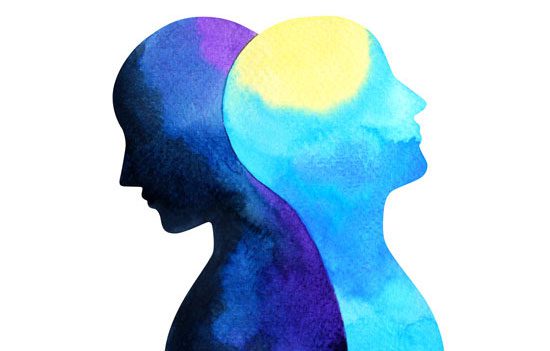About Bipolar Disorder
Bipolar disorder is a complex diagnosis that makes it difficult to recognize and treat. To complicate matters further, people with bipolar disorder tend to experience higher rates of alcohol and drug abuse. Someone suffering from bipolar disorder and alcohol or drug addiction requires treatment that addresses both issues at once. Despite the complications of the co-occurring disorders, people with bipolar and alcohol or drug use disorder can still reach and maintain sobriety.
According to Psychology Today, three main forms of bipolar disorder exist:
- Bipolar I Disorder: Individuals with bipolar I experience manic episodes that last for at least one week. The person may or may not experience depression; however, the symptoms and effects of the manic episode can require a hospital stay.
- Bipolar II Disorder: This variation is less severe and refers to the past or present existence of hypomania, or manic episodes which last for a minimum of four days. Episodes of major depression also occur.
- Cyclothymic Disorder: Also referred to as cyclothymia, this disorder consists of hypomanic and depressive episodes that an adult person experiences over the course of, at minimum, a two-year period.
Although these types of bipolar disorder vary in their severity and frequency, they can each be chronic, requiring a lifetime of management. Additionally, most people with one of these disorders spend years either unaware that they have a disorder or receiving misdiagnoses of it.
Managing Daily Life with Bipolar Disorder
How does a person manage these cycles of mood shifts, depression, and manic behavior?
Manic episodes of bipolar disorder may involve extreme bursts of cheer, feelings of joy, deep irritability, an aversion to sleep, chattiness, incoherency, and impulsivity. Depressive episodes are characterized by sadness, loss of pleasure, and hopelessness often accompanied by weight gain or loss, abnormal sleep, fatigue, inability to concentrate, and other symptoms lasting at least two weeks. Medication and therapy can ease the symptoms of bipolar disorder, but when people aren’t aware of their illness or do not think they have the necessary support or resources, they often use alcohol or drugs to cope.
How does alcohol use interact with bipolar disorder?
Bipolar disorder is commonly accompanied by substance dependence, creating a vicious cycle. The sudden shifts in mood prompt substance use, exacerbating any manic or depressive episode. One study by Rafosky and Dunlop (2013) found strong evidence that alcohol use inflames the cycle of bipolar disorder, creating more mood swings, manic episodes, and cycles of depression–all while decreasing periods of lucidity between these episodes.
Treatment for Bipolar Disorder and Addiction
What treatment options exist for someone with bipolar disorder and addiction?
The first real opportunity for progress comes when the individual understands that they have bipolar disorder and can see how it functions separately from their alcohol or drug use. They can then start to see how their mood changes prompt drug or alcohol use–and vice versa.
Treatment centers like Highland Hospital are staffed by professionals who specialize in drug and alcohol treatment along with dual diagnosis care. At Highland Hospital, medical doctors, licensed and certified counselors, licensed social workers, nurses, and nursing assistants all work together to address both the mental health disorder and the addiction.
If you suspect that yourself or someone you love might be suffering from bipolar disorder alongside an overuse of alcohol or drugs, consider the following.
- Look for manic episodes, depressive episodes, hypomania, and mixes of all of these states.
- Understand that bipolar disorder is a brain chemistry disorder with genetic components. It is not a ‘personality problem’ or a moral failure. It requires medical treatment.
- Therapy helps, along with medication. A psychiatrist can help you find the correct medication, whether it be an antipsychotic, a mood stabilizer, or an antidepressant.
- Don’t try to treat bipolar disorder without also addressing the substance use disorder. Addiction treatment facilities that offer dual diagnosis care are your best option for long-term health.
- Educate yourself. Find a support group. Education often leads to early detection of the disorder, and the earlier it’s addressed the better.
We Can Help
At Highland Hospital, we can help you or your loved one begin to tackle the complexities that come with a dual diagnosis. While there is no cure for bipolar disorder or substance use disorder, both can be managed in a way that leads to sustainable, liberating well-being.
Sources
- psychologytoday.com/us/blog/anxiety-files/201103/understanding-bipolar-disorder
- psychologytoday.com/intl/conditions/bipolar-disorder
- psychologytoday.com/intl/basics/hypomania
- psychologytoday.com/us/blog/owning-bipolar/201809/the-bipolar-addiction-connection






